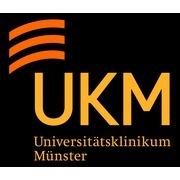Research Assistant - Münster, Deutschland - Universitätsklinikum Münster

Beschreibung
The Institute of Physiological Chemistry & Pathobiochemistry of the University of Münster offers a position with the possibility to do a doctorate, initially limited to 3 years, starting as soon as possible.
Doctoral ResearchFull-Time with 38.Seraphine Wegner is currently looking for two motivated doctoral candidates with an active interest in interdisciplinary research in the area of synthetic cells.
SIGSYNCELL is a doctoral network funded by the European Commission via Marie Sklodowska-Curie Actions (MSCA), whose goal is training through research.
It is a consortium that brings together a dozen European academic partners, in addition to private companies, coordinated by the CNRS in Bordeaux (F).
Biotechnologies also need to demonstrate that they can be embedded into environmental life cycles to become sustainable options.We now have at hand in the laboratory the tools to study these processes and elucidate their role in living systems.
In a controlled laboratory environment, both the cells and the environment can be fully controlled and engineered to gradually control and build up complexity of synthetic cell systems.
Research projects of SigSynCell at the University of MünsterFor more detail on the research profile of the group, please see:
Our overarching goal is to understand the basic mechanisms underlying the development of osteoarthritis and the onset of articular cartilage breakdown.
Specifically, this project will focus on the role of CXCR2 chemokine signalling in the modulation of chondrocyte-extracellular matrix interactions during skeletal development, cartilage injury repair and in osteoarthritis.
The PhD project will involve a wide range of experimental molecular (RT-PCR, RNAseq) and cell biological and immunological techniques (primary cell culture, immunocytochemistry, FACS, Western blot, microscopy) and research involving handling and analysis of murine transgenic models.
A Master of Science degree (and no previous PhD degree) in Chemistry, biochemistry, or related fieldsAdvanced level of training in Science and Technology with relevance to the specific PhD position, including laboratory experience
Good interpersonal, communication and reporting skills, both oral and written and interest for the promotion of science
The individual scientific projects are planned within one of the partner Host Institution and every Doctoral candidate will spend a part of their doctoral studies in another consortium laboratory (planned 3-6 months, maximum 12 months/36 months)
Such a position cannot be achieved by size and medical successes alone.
